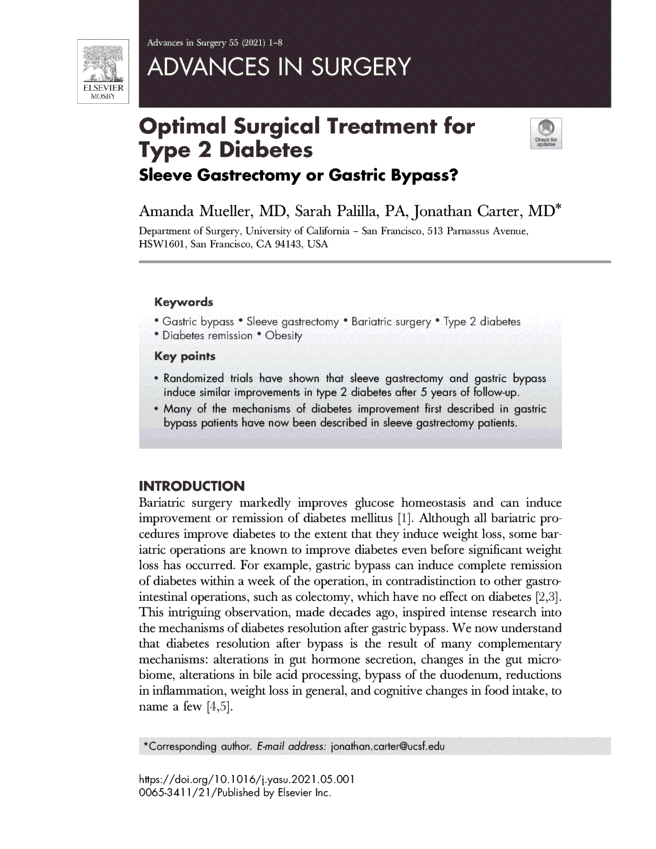Sleeve Gastrectomy or Gastric Bypass?
Clinical evidence from randomized, controlled trials
Although the literature is filled with retrospective comparisons of diabetes outcomes for patients who underwent sleeve gastrectomy or gastric bypass, several high-quality, well-conducted, prospective, randomized studies have been performed. We summarize these studies here.
In a multicenter, randomized, controlled trial, Wallenius and colleagues [9] randomized 49 patients with severe obesity and type 2 diabetes to sleeve gastrectomy or gastric bypass and followed up them for 2 years. Remission
The physiology of obesity as it relates to diabetes
To understand how sleeve gastrectomy or gastric bypass can ameliorate diabetes in patients with obesity, one must first understand some of the physiologic changes associated with obesity and glucose homeostasis. In patients with obesity, adipose tissue releases increased amounts of nonesterified fatty acids, glycerol, hormones, proinflammatory cytokines, and other factors that result in insulin resistance [15]. When insulin resistance is accompanied by dysfunction of pancreatic beta cells,
Mechanisms of diabetes resolution after sleeve gastrectomy or gastric bypass
Fig. 1 shows how both sleeve gastrectomy and gastric bypass affect glucose homeostasis to result in a reduction of fasting blood glucose and A1c. Both sleeve gastrectomy and gastric bypass cause increased release of ghrelin, peptide YY, incretins, and bile acids—all of which contribute to diabetes improvement via more insulin secretion or less insulin resistance. The only pathway unique to gastric bypass is duodenal exclusion. We discuss each pathway below:

Summary
Available clinical evidence from prospective, randomized trials has shown that sleeve gastrectomy and gastric bypass produce similar improvements in type 2 diabetes after up to 5 years of follow-up. Mechanistically, many of the pathways for diabetes improvement that were originally described for gastric bypass have now been shown to occur after sleeve gastrectomy. As such, based on current evidence, we recommend clinicians and patients choose between bypass or sleeve based on factors other than
Disclosure
The authors have nothing to disclose.
references : Optimal Surgical Treatment for Type 2 Diabetes: Sleeve Gastrectomy or Gastric Bypass? – ScienceDirect
